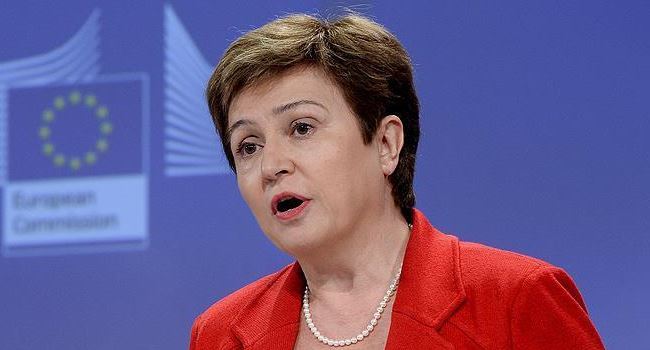Business
Housing cost, food supply disruption to push inflation up in Nigeria – IMF

The International Monetary Fund (IMF) said on Friday inflation rate would rise higher in Nigeria and other emerging markets than in advanced economies by end of this year.
The IMF projected the rise in inflation as countries continue to grasp the aftermath of COVID-19 pandemic on their economies which triggered a recession in most countries across the world.
The Bretton Woods institution said in weekly report that annual inflation for developed countries was projected to hit 3.6 percent in 2020 while in Nigeria and other developing nations, it would peak at 6.8 percent.
However, the inflation rate is expected to ease to 2 percent by 2022 in advanced economies, and revert to 4 percent in emerging markets.
This prediction came at a period Nigeria’s inflation rate contracted five months consecutively, settling at 17.01 percent in August from 17.38 percent recorded the previous month.
READ ALSO: IMF boosts Nigeria’s external reserves with $3.35bn allocation from SDR
IMF based its forecast on the rise in cost of housing and continued supply chain disruptions which had been evident in Nigeria following herdsmen and farmer clash as well as bandits attack on the highway in the Northern part of the country.
The international body also mentioned currency depreciations as factors that will aid the projected inflation rates.
IMF said: “The projections, however, come with considerable uncertainty, and inflation may be elevated for longer.
“Contributing factors could include surging housing costs and prolonged supply shortages in advanced and developing economies, or food-price pressure and currency depreciations in emerging markets.
“Food prices around the world jumped by about 40 percent during the pandemic, an especially acute challenge for low-income countries where such purchases make up a big share of consumer spending.
“Simulations of several extreme risk scenarios show prices could rise significantly faster on continued supply chain disruptions, large commodity price swings, and a de-anchoring of expectations.”
Join the conversation
Support Ripples Nigeria, hold up solutions journalism
Balanced, fearless journalism driven by data comes at huge financial costs.
As a media platform, we hold leadership accountable and will not trade the right to press freedom and free speech for a piece of cake.
If you like what we do, and are ready to uphold solutions journalism, kindly donate to the Ripples Nigeria cause.
Your support would help to ensure that citizens and institutions continue to have free access to credible and reliable information for societal development.
























